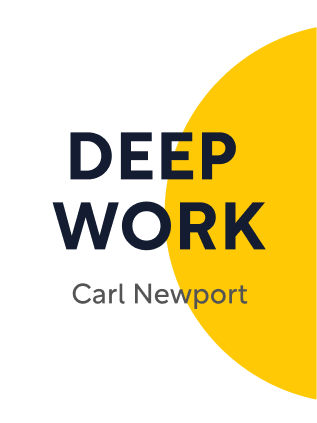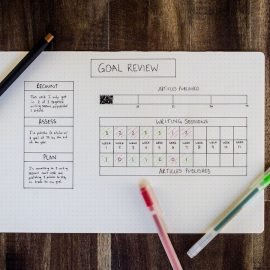

This article is an excerpt from the Shortform book guide to "Deep Work" by Cal Newport. Shortform has the world's best summaries and analyses of books you should be reading.
Like this article? Sign up for a free trial here .
What is digital minimalism? How can practicing digital minimalism increase your deep work?
Deep work and digital minimalism go hand-in-hand. Digital minimalism is Cal Newport’s term for cutting back on screen time and optimizing you internet usage. This allows you to minimize your distractions and increase your focus at work.
Keep reading for advice on how to practice digital minimalism.
Practice Digital Minimalism for Deep Work
A key to spending more time in deep work is to avoid distractions that take you out of deep work. That’s why deep work and digital minimalism go together.
For many people, the greatest distraction is the Internet, and particularly social media. The book Deep Work dedicates a chapter to ridding yourself of social media as a distraction. If social media isn’t a big problem for you, some of these principles can be generalized to your personal distraction demon.
The Problem with Social Media
Social media, and much of the Internet in general, is designed to get you addicted to its content. These are lightweight whimsies, unimportant distractions derailing you from meeting your true goals.
Like shallow work, social media is insidious in that it seems like you’re doing productive things, when really the gains are minor. For example, people believe that Facebook connects them to people or surfaces relevant news. This sounds good in principle, but the real result is superficial. The acquaintances you’re making are shallow and unlikely to be the center of your social life – for people you really care about, you’ll arrange to see them outside of Facebook. Similarly, the news you’re digesting may be fun to read, but they mostly don’t move you closer to your major life goals.
To counteract this, some people have declared Internet sabbaticals, where they go completely off the grid for a month. Cal Newport thinks this is missing the point – it’s not necessary to be a Luddite, just like artisans don’t forego all tools made of metal. Social media has its uses – they just need to be carefully considered.
Justify Your Internet Usage
When deciding whether to use a tool like social media, many people use the “any benefit” argument – a technology tool is justified if it conveys “any benefit at all” from its use.
But this dilutes your focus, since concentrating your time on the most effective tools will make you more productive.
In contrast to the “any benefit” justification, make a well-reasoned argument about the tool’s benefits, cost and the opportunity cost. This will maximize your output.
Here’s how:
- Make a list of the most important goals to you – professionally and personally.
- Then list the two or three most important activities that help you progress toward the goal.
- These activities should be specific enough to know what to do, but general enough that they’re not a one-time outcome.
- “Do good research” is too vague, “Finish paper A” is too one-time and doesn’t suggest a repeatable practice to keep moving you forward. Instead, “regularly read the cutting-edge papers in the field” is better.
- For each of your major tools (Facebook, Twitter, Reddit, etc), describe whether/how they contribute meaningfully to your important goals.
- If your personal goal is to develop meaningful relationships with those close to you, Facebook is likely inferior to calling old friends and scheduling outings.
- If your professional goal is to develop innovative products that solve people’s problems, then spending time on Reddit or marketing yourself on Twitter may be less effective than focusing on the problem area and talking to experts in the field.
- Tally up the time you spend on the distraction. Propose alternative activities that would get you closer to your major goals. These more meaningful activities are the true opportunity cost – if you spend time on unproductive tools, you have less time to spend on more productive activities.
- Adopt the tool only if the benefits substantially outweigh the negative impact and the opportunity cost. Consider whether you should put that time into the alternate activities.
Most likely, you’ll find that a few significant activities drive most of the progress toward your most important goals. Once you discover this, you’ll be able to discard the numerous tasks that aren’t actually productive.
Tactics for Digital Minimalism
The book suggests two ways to reduce your addiction to the Internet or social media.
1) Take an experiment and quit using your Internet drug of choice. Quit for 30 days and see what happens. Afterward, consider whether your life would have been notably better if you had been able to use that service.
- What holds people back from quitting is the conceit that people care what you have to say. In reality, much of social media for most people is a mutual exchange: “like my stuff and I’ll like yours too.” It’s not a genuine interaction, and it can be easily replaced by other people. If you quit social media, you may find that you weren’t missed at all.
- Don’t announce that you’re leaving – this nurtures the conceit that people will miss you. Just drop off and see what happens. If anyone cares, they’ll get in touch with you another way.
- If you quit reading news or participating in online flame wars, you may find yourself being more content and that you didn’t miss out on hearing a big announcement a few hours late.
2) Instead of the Internet, plan another way to spend your time.
- Structured hobbies with defined goals are good ways to focus. Example: reading a certain number of books, knitting a scarf.
- “But isn’t the point of free time to relax and be distracted? How would I recharge without this meandering time?” In reality, Cal Newport argues that the mind is capable of uninterrupted hard activity – all it wants is change, not rest.
- If you accomplish a goal in your free time, you’ll feel more fulfilled than if you spent hours meandering aimlessly on the Internet. You’ll also begin the next day more relaxed and ready to do deep work.

———End of Preview———
Like what you just read? Read the rest of the world's best book summary and analysis of Cal Newport's "Deep Work" at Shortform .
Here's what you'll find in our full Deep Work summary :
- How deep work is critical for performance and productivity
- Why focus is like a mental muscle
- Why willpower isn't as good as a ritual






